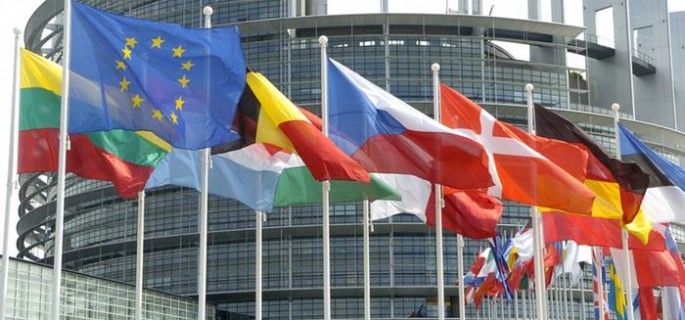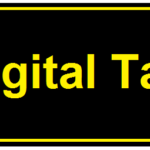European Commission welcome digital taxation proposal

The European Commission has today welcomed a joint proposal from the so-called Big Four member states – France, Germany, Italy and Spain – on the taxation of large digital companies.
The Irish Government is, however, expected to express caution and scepticism about the idea.
The proposal will be presented at the informal meeting of EU finance ministers in Tallinn this weekend under the Estonian Presidency of the EU.
Ireland’s Minister for Finance Paschal Donohoe will attend the Ecofin informal.
“We’re very glad to see political interest in this issue,” said Commission spokeswoman Vanessa Mock. “We trust and hope this momentum can be harnessed to drive forward our work to find a solution to the taxation of the digital economy.”
The proposal comes in a joint letter from the finance ministers of France, Germany, Italy and Spain.
The letter reportedly calls on the European Commission to ensure that digital multinationals like Amazon and Google are taxed based on their revenues, rather than only on their profits.
Currently such companies are often taxed on profits booked by subsidiaries in low-tax countries like Ireland, even though the revenue originated from other EU countries.
“We should no longer accept that these companies do business in Europe while paying minimal amounts of tax to our treasuries,” the four ministers wrote.
While the Commission today welcomed the idea as a contribution to the debate about how to tax multinationals who operate in the digital sphere – the so-called GAFA group of Google, Apple, Facebook and Amazon – the spokeswoman added: “We really would need to see how a tax like this is constructed. There are lots of different ideas that also our experts have been looking at, that other member states have been looking at in the past.”
The Irish Government is likely to resist the move, given the current sensitivities over corporate tax and multinationals like Apple operating in Ireland.
Informed sources suggest the proposal lacks detail and that moving from a tax on profit to a tax on turnover would require a change to EU rules.
Work is already being carried out by the OECD on how to tackle the controversial questions surrounding the taxation of the multinationals operating in the digital economy.
Many such firms operate subsidiaries in low tax countries and have often availed of elaborate schemes to exploit the difference between US and EU member state taxation rules.
In October 2015 the OECD produced an inconclusive report on the issue. A follow up report is expected in the spring of 2018, following consultations with stakeholders, including Silicon Valley firms.
The Big Four proposal recommends an “equalisation tax” on turnover, so internet companies pay tax where they make money rather than where they registered.
One of the most trenchant criticisms surrounding the Apple case in Ireland was that the company was generating vast amounts of profit from sales in other EU member states, but that those profits were then routed through Irish subsidiaries.
However, there is scepticism over targeting digital giants for special tax rules.
The Irish Government may raise questions about how an equalisation tax would work, and how the turnover of a large digital company might be measured.
There may also be problems with how to define what a digital company is, and how to avoid discrimination.
It is understood the idea was initially promoted by Bruno Le Maire, French President Macron’s new finance minister.
The European Commission today suggested that work on the idea could happen in parallel with the ongoing proposal on a common consolidated corporate tax base, or CCCTB.
Last October the Commission revived the idea of a CCCTB followed several years of legislative deadlock on the issue.
The CCCTB aims to create a single definition of a corporate tax base for companies that operate multiple subsidiaries across the EU.
Under the proposal, companies would be faced with a single set of rules on what is taxable and what can be written off against tax across 28 member states, as opposed to the current system where such companies face multiple tax returns in different EU tax jurisdictions.
The proposal would then create a formula which would calculate and apportion out the overall tax liable across the member states.
In October, the Commission decided to break the issue in two, with one proposal on establishing the tax base, and a second proposal envisaged later to address the more complex and controversial issue of how to establish the formula that would effectively divide up a company’s annual cross border tax return.
Work on the first aspect has been ongoing, but slow. The Irish government, while highly sceptical in the past about CCCTB, has said it is “engaging constructively” on the issue.
Today the Commission said the two issues – CCCTB, and a special way to tax digital companies – could be looked at in parallel.
“Broadly, as with any business, digital giants should pay their fair share of tax in the countries where their profits are gained,” said spokeswoman Vanessa Mock.
“This is not a new issue. It is something we’ve been looking at very closely for a number of years… We have been contributing to the global work on this notably at the OECD and at the G20.
“We have to maintain a level playing field so that all companies pay their fair share and their profits are taxed where value is created.
“It’s on this basis that we proposed [the CCCTB] for the more traditional bricks and mortar economy…, and we need to apply the same principle to digital companies.”
Sources suggest, however, that it may not be possible for the Commission to quickly introduce a new legislative proposal reflecting the Big Four letter, given how complex and controversial the CCCTB proposals have been over the years.
Source: RTE – European Commission welcome digital taxation proposal



























